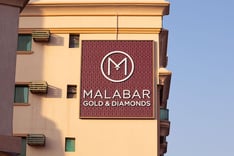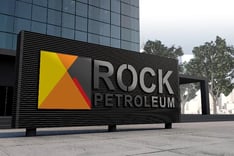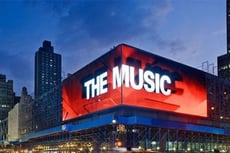

Signage Approval
The procedure of getting approval from the appropriate authorities to install and show billboards and signs throughout the emirate is known as "signage approval." Although the Roads and Transport Authority (RTA), Abu Dhabi Media Company (ADMC), and Emirates Authority for Standardization and Metrology (ESMA) are also involved, the Dubai Municipality is the primary body in charge of approving signage applications.
Interested parties or businesses must submit a filled-out application form to the Dubai Municipality's Regulatory Department together with the necessary paperwork in order to have a signboard approved in Dubai.
The municipality's Customer Service Centers or website both offer the form for download. Following receipt, the application will be examined by the regulatory department before being sent to the appropriate authority for final approval.
Which agency must provide its approval will depend on the kind of billboard or signboard that will be installed. For instance, both RTA and Dubai Municipality licenses will be needed if the signboard is to be mounted on a building. On the other hand, only RTA clearance is required if the signboard would only be seen on a car.
After receiving all necessary approvals, interested parties can start building their billboards or signboards. They must, however, make sure that these abide by all applicable laws and guidelines established by the RTA, Dubai Municipality, and other relevant agencies.
Rules For Approving Signage
A signboard can only be allowed if its size, position, kind, and content are all suitable, according to our specialists. When it comes to hoarding boards, which are often very large in size, safety is the first concern.
If adequate precautions are not taken to guarantee a secure installation, permission from the hoarding board cannot be obtained. The content must respect public decency and regional norms, as stipulated by UAE legislation.
Only names that match those on the business's DMCC Trade Licence are permitted for signage in Dubai. The government forbids signboards for people who are an annoyance to the nearby homes in an attempt to reduce light pollution and light-related disruption.
They must also avoid creating any fire hazards and utilize strong materials. Every electrical component needs to be protected and hidden. Details on the materials, types of lighting, and measurements must be included in the application for sign approval.
The relevant NOC from the building owner or developer is also necessary in addition to the Permit to Work. Temporary signs such as "Opening Soon" must also be permitted in Dubai. If applicable, the sign must specify which gender the business serves.
Who Requires Signage Approval?
In Dubai, permission from the Dubai Municipality is required before a sign can be erected or displayed. This comprises banners and flags hung in public areas, signs on buildings, and signage positioned on the side of the road or expressway.
Any kind of signage must be approved before it can be displayed in public, though there are few exceptions, like temporary construction signs and tiny office nameplates.
You must apply to the municipality and provide comprehensive drawings of the proposed sign in order to have signage approved in Dubai. Information on the sign's dimensions, placement, and content must be included in the application, along with the contact information of the person in charge of hanging it.
You will receive a permit to erect your sign after your application has been examined and accepted. It's crucial to remember that all signs in Dubai have to follow the city's specifications regarding their dimensions, design, and language. The municipality will not authorize signs that do not comply with these standards, and they may be removed or fined.
Different Types of Signage Requirements
Depending on the kind of sign you wish to erect, Dubai has varying procedures for signage permission. For instance, the Dubai Municipality must give its clearance before you can erect a banner sign.
The Department of Economic Development and the Dubai Municipality must both provide their consent before you can erect an illuminated sign. Additionally, different parts of Dubai have varying sign standards.
For instance, signs in residential zones are limited to a maximum size of 5 square meters. Signs in business districts can't be larger than 10 square meters. Additionally, signs in industrial locations can't be larger than 20 square meters.
Additionally, the criteria for signs vary based on their intended use. Directional signs, for instance, have to be positioned at least thirty meters apart. Additionally, it is forbidden to erect advertising signs within 100 meters of a hospital, school, or place of worship.
Design Considerations
There are a few important design factors you must take into account in order to get signs approved in Dubai. These consist of: Elevation Signage cannot be higher than three meters in Dubai. Dimensions
Signage cannot exceed 10 square meters in size. Where
Signs must be visible from the road and positioned at least two meters above the ground. Additionally, they must be positioned inside the Roads and Transport Authority's (RTA) approved advertising zone.
In Dubai, you can advertise using a variety of signs, such as flags, projection signs, hanging signs, and LED signs. Before being approved, each form of sign must fulfill a specific set of conditions.
Content
The Department of Economic Development's (DED) Advertising Regulations must be adhered to by all signage. This includes making sure that none of the signage you use is deceptive or objectionable.
A successful project in Dubai requires adherence to a number of laws around signage clearance. It's critical to understand what kinds of signage are permitted, consult an expert if necessary, and keep all necessary documentation up to date.
By according to these criteria, you may stay in compliance with local laws and regulations and ensure that your signage permission is received without any problems.




